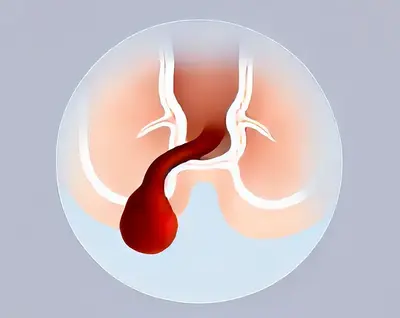Pregnancy is a beautiful journey, but it also brings unexpected challenges. One of the more common yet rarely discussed issues is hemorrhoids during pregnancy. These swollen veins in the rectal area can cause discomfort, especially during the later stages of pregnancy.
Take Amina, a 28-year-old mother-to-be, who thought she had prepared for every pregnancy symptom. However, she found herself dealing with hemorrhoids that began with mild itching but later turned into pain, making it difficult to sit comfortably.
What Causes Hemorrhoids During Pregnancy?
Hemorrhoids during pregnancy can be attributed to several factors, the most common being pressure from the growing uterus. As the baby develops, it exerts pressure on the pelvic veins, leading to swelling. Hormonal changes and increased blood volume also contribute to the problem.
According to the American Pregnancy Association, “Women are more likely to suffer from hemorrhoids when pregnant due to increased pressure on the pelvic veins caused by the expanding uterus.” Additionally, constipation, a frequent issue during pregnancy, can worsen hemorrhoids by causing straining during bowel movements.
Symptoms of Hemorrhoids in Pregnant Women
Many women experience hemorrhoids differently. Some, like Isabelle, suffer from mild itching, while others, like Laura, experience intense discomfort. The symptoms can range from irritation to more severe issues, such as:
- Itching or discomfort in the anal area
- Painful swelling around the anus
- Bleeding during bowel movements
- A noticeable lump in the rectal area
For Isabelle, the mild discomfort quickly escalated into painful swelling and even bleeding, which made her worry about her health. Thankfully, these symptoms are usually manageable with the right treatments.
Common Treatments and Relief for Hemorrhoids
While hemorrhoids during pregnancy are generally harmless, they can cause considerable discomfort. Fortunately, there are several safe and effective remedies available for expecting mothers:
1. Diet and Hydration
A high-fiber diet is one of the easiest ways to prevent constipation, which in turn reduces strain on the veins. Drinking plenty of water also helps ensure that stools remain soft, easing the pressure on hemorrhoids.
2. Topical Treatments
Over-the-counter creams and ointments specifically designed for hemorrhoid relief can help soothe itching and reduce swelling. Dr. Katherine Johnson, a board-certified gynecologist, advises, “Pregnant women should consult with their healthcare providers before using any medication, but topical treatments are generally considered safe.”
3. Resting Positions
Changing your resting position can help relieve the pressure on the rectal area. Lying on your side instead of sitting or standing for long periods can reduce discomfort significantly. Dr. Rebecca Frazier, an obstetrician, recommends, “Resting on your left side can alleviate pressure on the veins, providing much-needed relief from hemorrhoid discomfort.”
How to Prevent Hemorrhoids During Pregnancy
Preventing hemorrhoids is more manageable than dealing with them after they form. By making a few adjustments, you can significantly lower the risk of developing hemorrhoids during pregnancy.
- Avoid prolonged sitting or standing: Too much time in one position increases pressure on your rectal veins. Try to take breaks and move around as much as possible.
- Move regularly: Light physical activity, such as walking, helps keep your circulation flowing and promotes regular bowel movements, which prevents straining.
- Don’t delay bowel movements: Waiting too long can cause stool to harden, leading to straining, which can exacerbate hemorrhoids.
Hemorrhoids in Late Pregnancy: When to Seek Medical Help
Hemorrhoids often develop during the third trimester due to the growing baby’s weight and increased blood flow. However, sometimes they can become more severe, requiring medical attention. If you experience persistent bleeding, severe pain, or if the hemorrhoids prolapse (extend outside the anus), it’s time to consult your doctor.
Take Rachel, for example, who endured weeks of discomfort before her hemorrhoids became so painful that her doctor recommended a simple, non-invasive procedure. Afterward, she experienced significant relief, allowing her to focus more on preparing for her baby.
Table: Triggers and Solutions for Hemorrhoids During Pregnancy
| Trigger | Why It Happens | Solution |
|---|---|---|
| Constipation | Pressure from hard stools during bowel movements | High-fiber diet, adequate hydration |
| Straining | Forces blood into the veins in the rectal area | Avoid straining, consider stool softeners |
| Prolonged sitting | Puts pressure on rectal veins | Move regularly, rest on your side |
| Increased blood volume | Swelling caused by greater blood flow during pregnancy | Elevate legs, reduce pelvic pressure |
Postpartum Hemorrhoids: Recovery After Birth
For many women, hemorrhoids don’t just disappear after birth. The strain from labor can worsen hemorrhoids, though they typically improve within a few weeks. If symptoms persist, continue using the treatments mentioned above. In most cases, postpartum hemorrhoids will heal naturally.
“Postpartum hemorrhoids are common and usually resolve within six weeks,” says Dr. Katherine Johnson. If they don’t, consult your doctor to explore further treatment options.
Hemorrhoids Aren’t the End of the World
Hemorrhoids during pregnancy are certainly uncomfortable, but they are treatable. By maintaining a fiber-rich diet, staying hydrated, and taking care to move frequently, you can significantly reduce your risk. For those who do experience symptoms, there are plenty of safe remedies available. Just like Emma, who managed her hemorrhoids with the help of her healthcare provider, many expecting mothers find relief and can enjoy the rest of their pregnancy.









